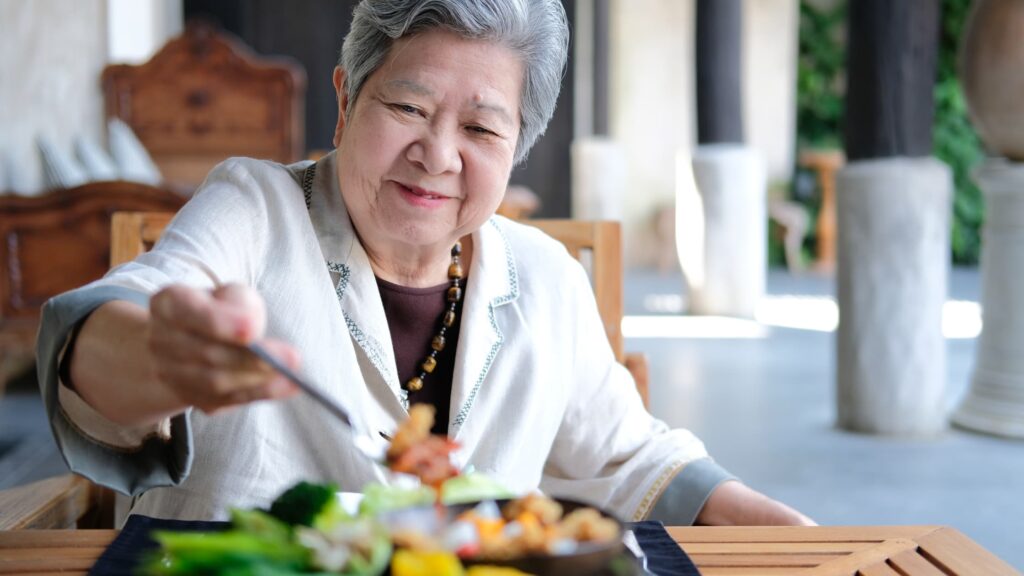Comfort Food for the Soul: How Food Triggers Memories in Seniors

As we age, our memories can become harder to access. However, our emotional connection to food can be a powerful way to bring forth memories. A whiff of cinnamon can bring Grandma back to her childhood kitchen. A bowl of chicken noodle soup might remind Dad of his mother’s care during sick days. For seniors, food can be more than just nutrition, it can be a gateway to the past, a source of comfort, and even a great tool in memory care.
In this blog, we’ll look at how food triggers memories in seniors and how it can improve emotional well-being and quality of life in senior care.
The Deep Connection Between Food and Memory
Research suggests that the brain processes smell, taste, and memory in closely connected regions. The olfactory bulb, responsible for smell, is linked to the limbic system which relates to emotion and memory. That’s why specific smells and tastes can instantly transport us to a different time and place.

A study looked at the Proust Effect, where autobiographical memories are activated by senses, particularly by smell and taste. They found that nostalgic memories triggered by taste and smell are more self-relevant and result in a more positive mood compared to other means. This can be especially helpful for those with Alzheimer’s or dementia because these sensory cues can bypass cognitive decline and unlock lost memories.
Comfort Food as a Bridge to the Past
When a senior is served familiar, culturally relevant, or nostalgic meals, it can affirm their identity and create emotional security. This is especially important for seniors facing memory challenges or depression.
Tips for Using Food to Support Memory in Seniors
If you’re caring for an aging parent or grandparent, here are a few ways to use food as a tool to support memory:
- Ask about their favorite childhood meals – Recreate them together if possible. Even smelling simmering soup can spark emotion.
- Incorporate sensory variety – Using spices, textures, and even presentation can engage the senses. The more sensory-rich the experience, the more likely it is to trigger memories.
- Create mealtime rituals – Having familiar routines can promote comfort. Sharing a prayer or simply setting the table together can reinforce a sense of purpose and routine.
- Encourage storytelling during meals – Ask open-ended questions like “Did your family have a special dish for holidays?”

The Role of Caregivers in Bringing Food to Life
Professional caregivers have the unique opportunity of using food as part of holistic care in home care settings. Caregivers can nurture emotional and mental well-being through personalized meals, like preparing a traditional family recipe.
Final Thoughts
Food offers more than just nourishment, it also brings us back to our past and gives us a source of emotional support. When we understand how food triggers memory in seniors, we are able to create more compassionate and personalized care experiences that nourish the body and the soul.



